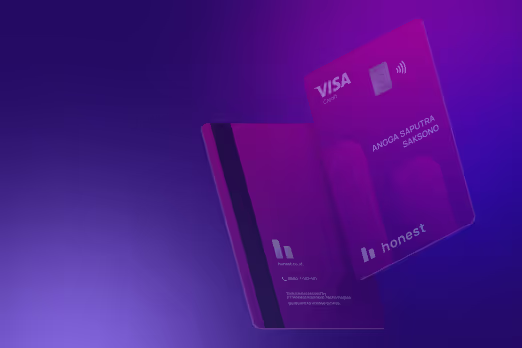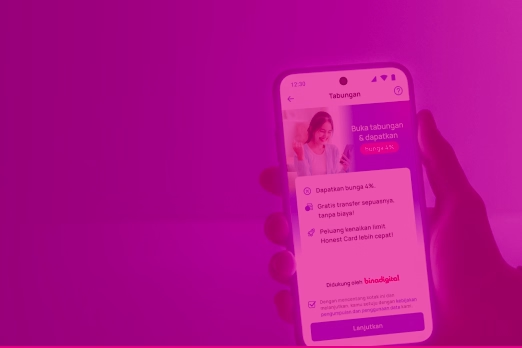10 Smart ways to manage your spending for healthier finances
Have you ever felt like your salary is decent, but somehow your money is already running low by the end of the month? Don’t worry, you’re not alone. A lot of people feel the same way. Because no matter how much you earn, if it’s not managed wisely, your money can still disappear without a trace by the end of the month. Especially now with rising prices on goods and services.
If you don’t want this to keep happening, you can follow these smart tips for managing your expenses.
1. Pay bills and debts first
The first tip for managing your finances wisely is to pay bills and debts first. So, when your salary hits your account, immediately set aside a portion to pay for electricity, phone credit, water, health insurance (BPJS), and debts. Debts here include money owed to family or friends, mortgage payments, credit card bills, and other types of loans.
This is important so your electricity and water supply do not get cut off and to avoid paying higher interest rates in the future. For more convenience, you can pay your bills with an Honest Credit Card. When the due date comes, your credit limit will automatically be reduced by the amount of the bill.
2. Immediately set aside money for savings and investments
The next step to managing personal finances is to set aside money for savings and investments as soon as you receive your income. The goal is to prevent you from accidentally spending money that should go toward these important categories.
Savings and investments are essential for reducing future risks and reaching financial goals. Ideally, you should allocate at least 20 percent of your income. However, you can always adjust based on your financial situation that month.
3. Create a financial budget
After handling bills, debts, savings, and investments, the next step is to create a budget to plan your daily spending. A financial budget is an important personal finance tool because it helps you review your monthly spending and avoid wasteful habits like impulse buying.
You can create a monthly budget using apps like Google Sheets or Excel. You can also use the Honest App to monitor your credit card transactions. With this app, you’ll get real-time notifications whenever money is spent on a purchase.
4. Bring a shopping list
If you’ve already created a shopping list at the start of the month, be disciplined in sticking to it. One key to managing personal finances well is to always bring your shopping list, whether you're grocery shopping or shopping online.
The goal is to avoid buying things you don’t actually need just because they’re on sale or look nice. Bringing a shopping list will also help you review your budget at the end of the month.
5. Cut back on the latte factor
Ever heard of the term latte factor? It refers to small but frequent expenses on things you don’t necessarily need, which can add up over time (United Credit Union, 2024).
For example, let’s say you buy a coffee every day for Rp30,000. On its own, Rp30,000 might not seem like a big deal. But if you do that every weekday, by the end of the month you’ll have spent Rp600,000. That money could have gone toward something more useful, like rent or investments.
That’s why cutting down on your latte factor is one of the smart ways to manage your money. And it’s not just coffee. This includes cigarettes, snacks with coworkers, lunch outside the office, and so on. You don’t need to stop completely. Just reduce it little by little so it feels more manageable.
6. Practice mindful spending
Aside from using a shopping list and cutting down on the latte factor, another habit worth building is mindful spending. Simply put, mindful spending means taking time to think before you make a purchase.
For example, you’re craving meatballs for dinner. Before buying, pause and think whether you really need it and how much it will cost. This habit can help you avoid impulsive spending and reduce wasteful behavior.
7. Be smart when shopping on marketplaces
Let’s face it. Having multiple marketplace apps on your phone is tempting because you can hunt for deals. But it can also lead to overspending.
To avoid this, try sticking to just one marketplace app and make sure every transaction is properly tracked. Use your Honest Card as the payment method so all your purchases are recorded in the Honest App.
8. Use discounts and promos wisely
Discounts and promos are great for saving money when you really need to buy something. But don’t let them tempt you into buying things you don’t need or buying too much.
For example, say you need 5 kg of rice for the month. It usually costs Rp75,000, but it’s on sale for Rp15,000 off. Instead of buying 10 kg at once, just stick to buying 5 kg like you planned. When you run out, then you can buy more.
9. Don’t forget to give
To make your income feel more meaningful and blessed, don’t forget to set aside a portion for giving. It doesn’t have to be a lot. Just 2.5 percent of your income is enough. For example, if you earn Rp10,000,000, then giving Rp250,000 is already good.
10. Review your budget
The final tip for managing your personal finances wisely is to review your budget, whether monthly or weekly. This helps you identify which expense categories need more or less funding in the future so you can hit your financial goals.
Building good financial habits takes time. But with these habits in place, you won’t need to stress about money in the future.
What are you waiting for?
Get your Honest Card today










